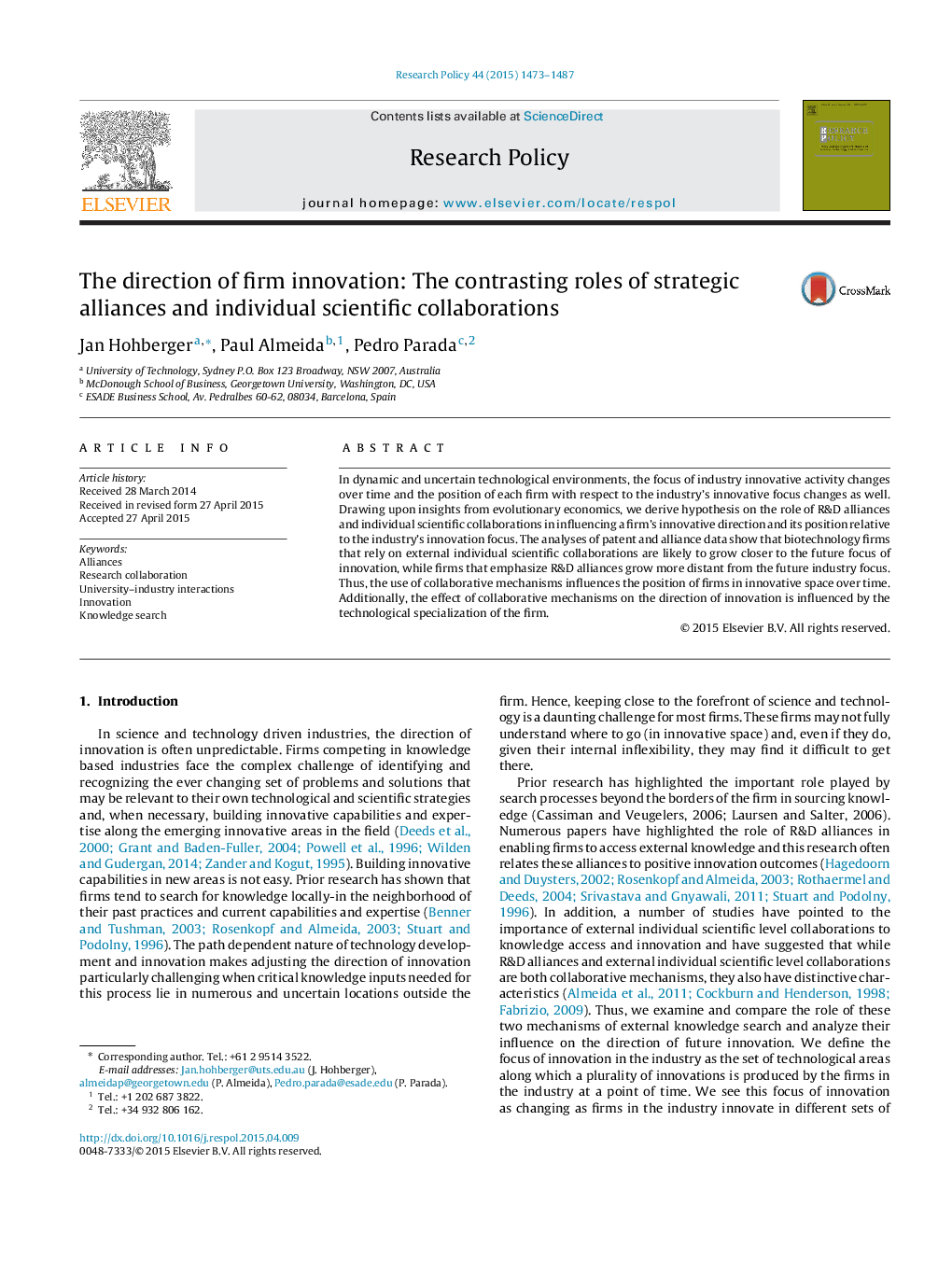| Article ID | Journal | Published Year | Pages | File Type |
|---|---|---|---|---|
| 10482941 | Research Policy | 2015 | 15 Pages |
Abstract
In dynamic and uncertain technological environments, the focus of industry innovative activity changes over time and the position of each firm with respect to the industry's innovative focus changes as well. Drawing upon insights from evolutionary economics, we derive hypothesis on the role of R&D alliances and individual scientific collaborations in influencing a firm's innovative direction and its position relative to the industry's innovation focus. The analyses of patent and alliance data show that biotechnology firms that rely on external individual scientific collaborations are likely to grow closer to the future focus of innovation, while firms that emphasize R&D alliances grow more distant from the future industry focus. Thus, the use of collaborative mechanisms influences the position of firms in innovative space over time. Additionally, the effect of collaborative mechanisms on the direction of innovation is influenced by the technological specialization of the firm.
Related Topics
Social Sciences and Humanities
Business, Management and Accounting
Business and International Management
Authors
Jan Hohberger, Paul Almeida, Pedro Parada,
